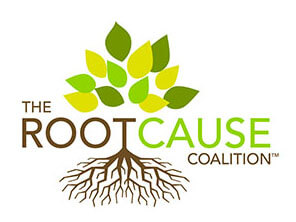America's Understanding of Place as a Health Indicator Falls Short
America's Understanding of Place as a Health Indicator Falls Short
The Root Cause Coalition’s Latest Public Insights Research Assesses Knowledge and Attitudes about Social Determinants of Health
Vaccine hesitancy persists across America
As the coalition has shared in its previous research, as of July 2021, similar percentages report an unwillingness to receive the COVID-19 vaccine. Roughly one-quarter of Americans do not want to be vaccinated at this time which includes significantly higher percentages of females, those earning less than $40,000/year and non-college educated individuals; this is especially true when compared to males, those age 65+, and individuals who are college educated.
Americans believe multiple factors impact whether an individual lives in poverty
Survey takers cited job status, access to health/healthcare and education level/degree as the top three factors that have a large impact on whether an individual lives in poverty. However, when presented with a list of possible reasons for living in poverty, several others were noted as also having a large impact; for example, access to transportation, neighborhood where one lives and number of family members in a household were widely cited. Looking at the demographics, Blacks were significantly more likely than whites to cite ethnicity as having a large impact on whether an individual lives in poverty.
While most Americans indicated that neighborhood has a large impact on whether one lives in poverty, over half report no familiarity with life expectancy gaps based on ZIP code. Those who report more familiarity include the following: males, under age 45, college educated, individuals earning $80,000/year, and parents. These demographics are like those who also report higher levels of familiarity with Systemic Racism, Health Equity and Health Justice.
These demographic trends hold true for other questions in the survey. For those living with a chronic condition, for example, males, college-educated and those earning $80,000/year report a significantly more positive experience with medical professionals. Among those with a negative medical experience, more than one-third say higher quality/better care would improve it.
Systemic Racism is a slightly more familiar term when compared to either Health Equity or Health Justice
When it comes to talking about Social Determinants of Health and related issues, more than three-quarters of Americans say they’re at least somewhat familiar with the term Systemic Racism. Not surprisingly, those under 45 were more likely to report hearing about it on social media while those 65 and older were more likely to hear about it on television news. Interestingly, Hispanics were significantly more likely than either Blacks or whites to hear about it from their child’s school.
Slightly less than three-quarters say they’re somewhat familiar with Health Equity but those under 45 and/or those who are parents report higher levels of familiarity. Just over 6 in 10 reported some familiarity with Health Justice, with similar demographics as Health Equity indicating more familiarity. In general, those who report less familiarity include females, whites, those earning less than $40,000, individuals that are non-college educated as well as non-parents.
Methodology
1,000 interviews among adults age 18+ were conducted July 7-15, 2021, using an online survey. The results were weighted to ensure proportional responses. The Bayesian confidence interval for 1,000 interviews is 3.5, which is roughly equivalent to a margin of error of ±3.1 at the 95% confidence level.
The Root Cause Coalition
Co-founded by AARP Foundation and ProMedica in 2015, The Root Cause Coalition is a non-profit member-driven organization comprised of more than 90 leading health systems, hospital associations, foundations, businesses, national and community nonprofits, health insurers, academic institutions, local governments, and policy centers. Our common goal is to achieve health equity for every American.
Please click here to view the full report.
